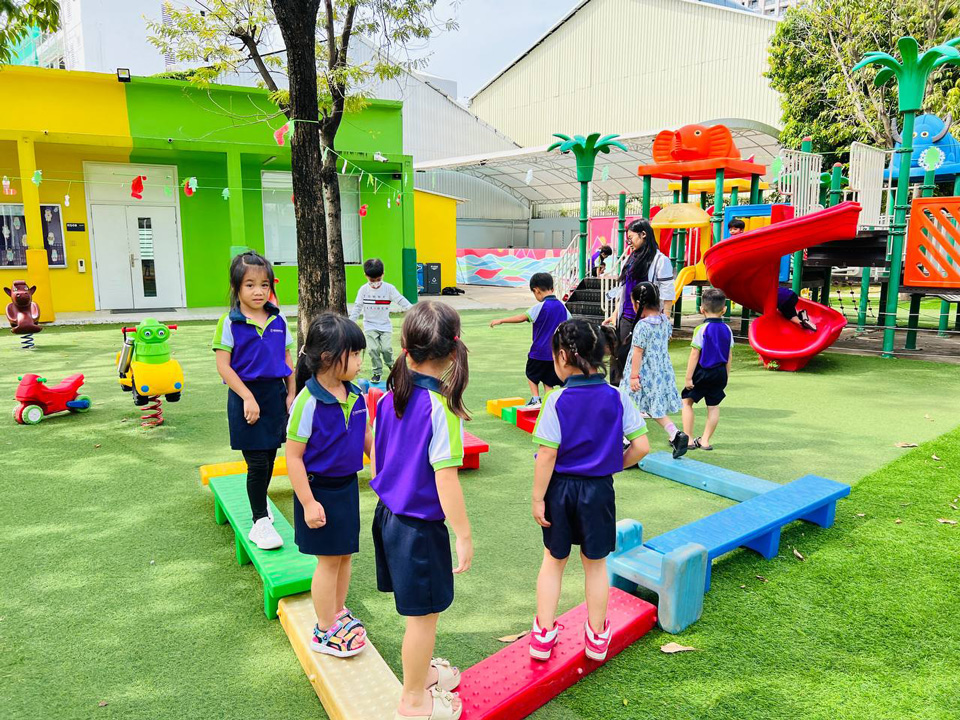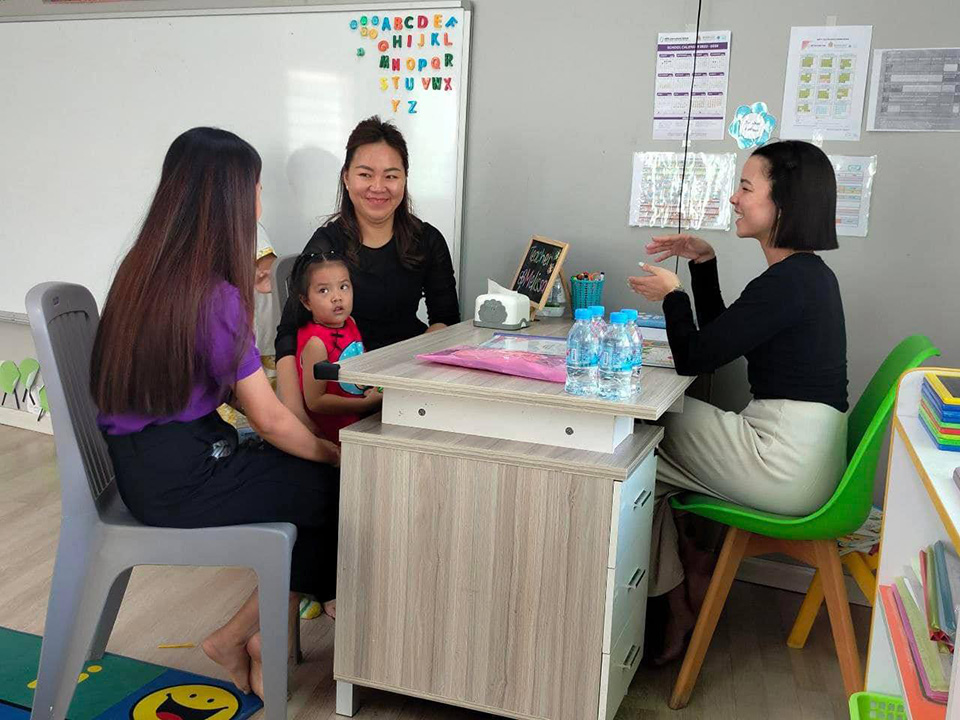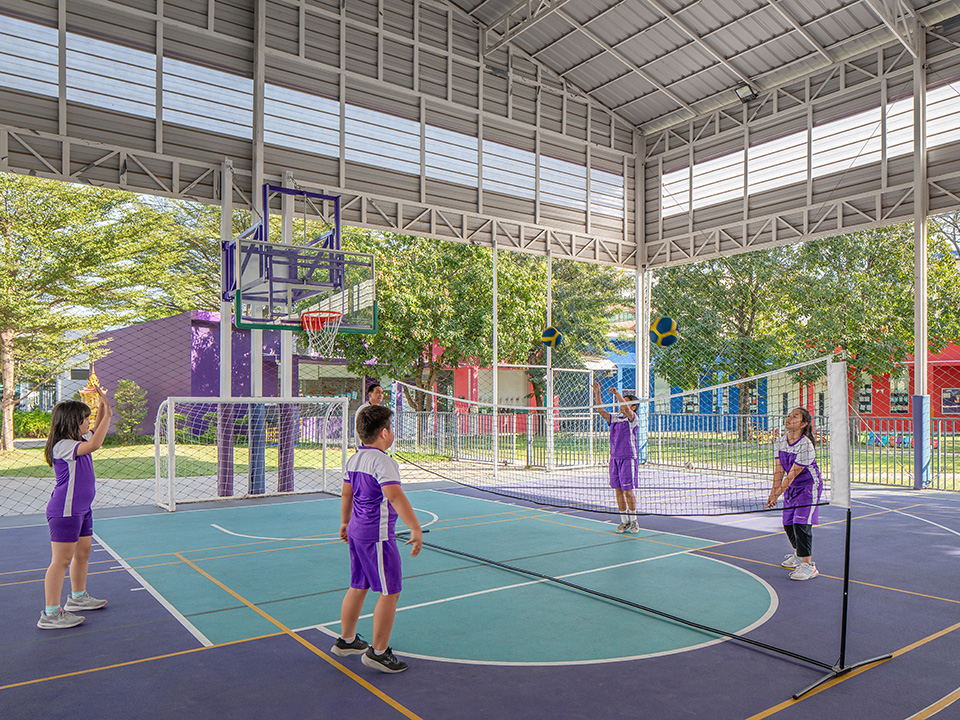Early Years
NIRAEARLY YEARS
Holistic development
The importance of early childhood education can not be emphasised enough, the benefits to young learners are endless. Throughout our kindergarten there is a strong focus on holistic development. We are committed to encouraging social and emotional growth, increasing cognitive skills and nurturing curiosity.
Engaging Curriculum
At NIRA ISC, we deliver the internationally respected IEYC curriculum. Therefore, children are introduced to interesting, creative activities on a daily basis and are engaged and motivated throughout the learning process.
Students also gain essential literacy skills through the Jolly Phonics Methodology. This approach encompasses a multisensory technique, which is proven to help children enjoy learning fundamental reading and writing skills.
Supportive Environment
Our dedicated teaching team understands the challenges that kindergarten can often present for children and parents alike. We appreciate that every child is unique and our experienced teachers provide exceptional standard, personalised care.
We strive to create a supportive environment and offer the stability that children and families require to feel confident and comfortable every day. In doing so, young learners can explore, enquire and thrive.
Learning Principles
The IEYC is designed around eight learning principles, that we consider essential to children’s learning and development.
- The earliest years of life are important in their own right.
- Children should be supported to learn and develop at their own unique pace.
- Play is an essential aspect of all children’s learning and development.
- Learning happens when developmentally-appropriate, teacher-scaffolded and child initiated experiences harness children’s natural curiosity in an enabling environment.
- Independent and interdependent learning experiences create a context for personal development and are the foundation of international mindedness.
- Knowledge and skills development lead to an increasing sense of understanding when children are provided with opportunities to explore and express their ideas in multiple ways.
- Ongoing assessment, in the form of evaluation and reflection, is effective when it involves a learning-link with the home.
- Learning should be motivating, engaging and fun, opening up a world of wonder for children where personal interests can flourish.
- At NIRA we recognize that young children move from more self-focused behavior, to learning and playing alongside each other, then learning to collaborate together. This is taught through making connections with other children, sharing needs and wants in a positive way, and understanding and communicating with others.
- Social skills are developed through activities focused on playing together with positive encouragement. We give children the skills to work with partners, such as actively listening by sitting knee-to-knee and eye-to-eye. Children come together in group work, learning to actively listen to others, share ideas and develop concepts together.
- Independence is key to social development. We work with parents to encourage each child to be independent, to pack their bag, put their shoes on, open their lunchbox etc. We build their confidence with routine and easy to use elements; this is where we allow them to make mistakes and learn from them.
Throughout Early Childhood, we model positive relationships in an environment where children have high levels of independence, self-esteem and self-confidence.
To boost these positive bonds, we encourage a strong parent-school relationship where parents actively contribute and join our classes for projects.
Walking on the campus rapidly generates a sense that this is a special place – a place that students and staff feel engaging and peaceful.
Its current buildings and garden are meticulously connected to reflect the proximity to the nature and the value of working and learning in a beautiful environment. It gives students a safe haven far from the usual urban uproar.
Learning Principles
The IEYC is designed around eight learning principles, that we consider essential to children’s learning and development.
- The earliest years of life are important in their own right.
- Children should be supported to learn and develop at their own unique pace.
- Play is an essential aspect of all children’s learning and development.
- Learning happens when developmentally-appropriate, teacher-scaffolded and child initiated experiences harness children’s natural curiosity in an enabling environment.
- Independent and interdependent learning experiences create a context for personal development and are the foundation of international mindedness.
- Knowledge and skills development lead to an increasing sense of understanding when children are provided with opportunities to explore and express their ideas in multiple ways.
- Ongoing assessment, in the form of evaluation and reflection, is effective when it involves a learning-link with the home.
- Learning should be motivating, engaging and fun, opening up a world of wonder for children where personal interests can flourish.
- At NIRA we recognize that young children move from more self-focused behavior, to learning and playing alongside each other, then learning to collaborate together. This is taught through making connections with other children, sharing needs and wants in a positive way, and understanding and communicating with others.
- Social skills are developed through activities focused on playing together with positive encouragement. We give children the skills to work with partners, such as actively listening by sitting knee-to-knee and eye-to-eye. Children come together in group work, learning to actively listen to others, share ideas and develop concepts together.
- Independence is key to social development. We work with parents to encourage each child to be independent, to pack their bag, put their shoes on, open their lunchbox etc. We build their confidence with routine and easy to use elements; this is where we allow them to make mistakes and learn from them.
Throughout Early Childhood, we model positive relationships in an environment where children have high levels of independence, self-esteem and self-confidence.
To boost these positive bonds, we encourage a strong parent-school relationship where parents actively contribute and join our classes for projects.
Walking on the campus rapidly generates a sense that this is a special place – a place that students and staff feel engaging and peaceful.
Its current buildings and garden are meticulously connected to reflect the proximity to the nature and the value of working and learning in a beautiful environment. It gives students a safe haven far from the usual urban uproar.












